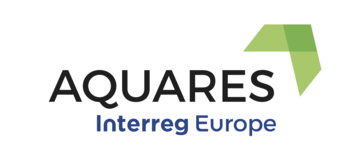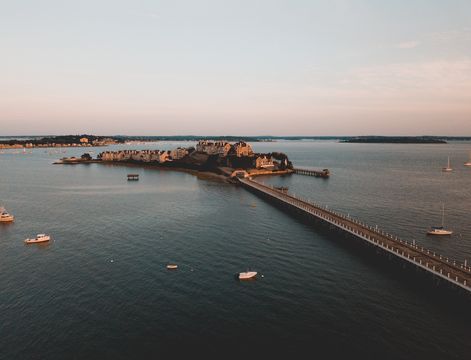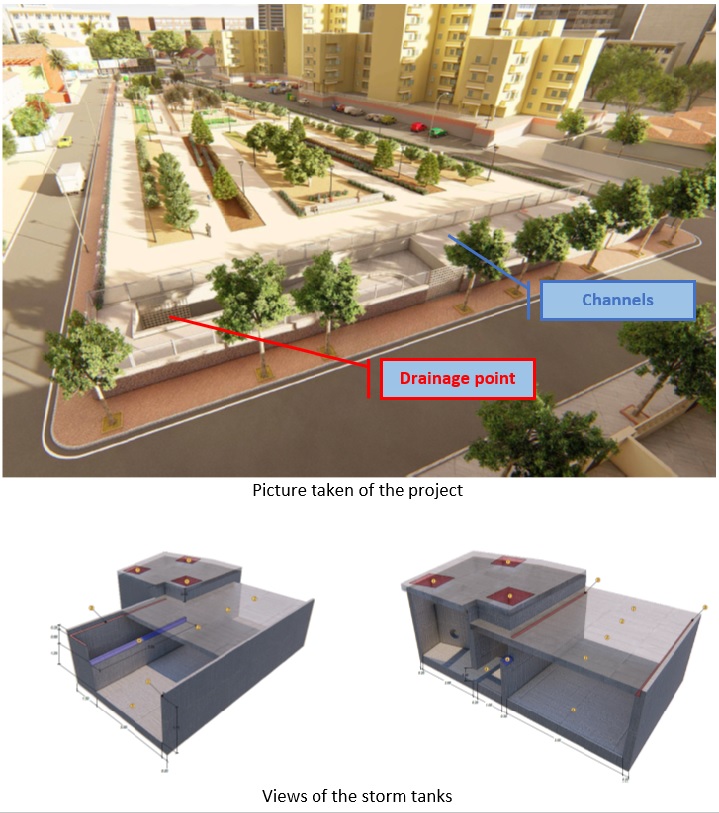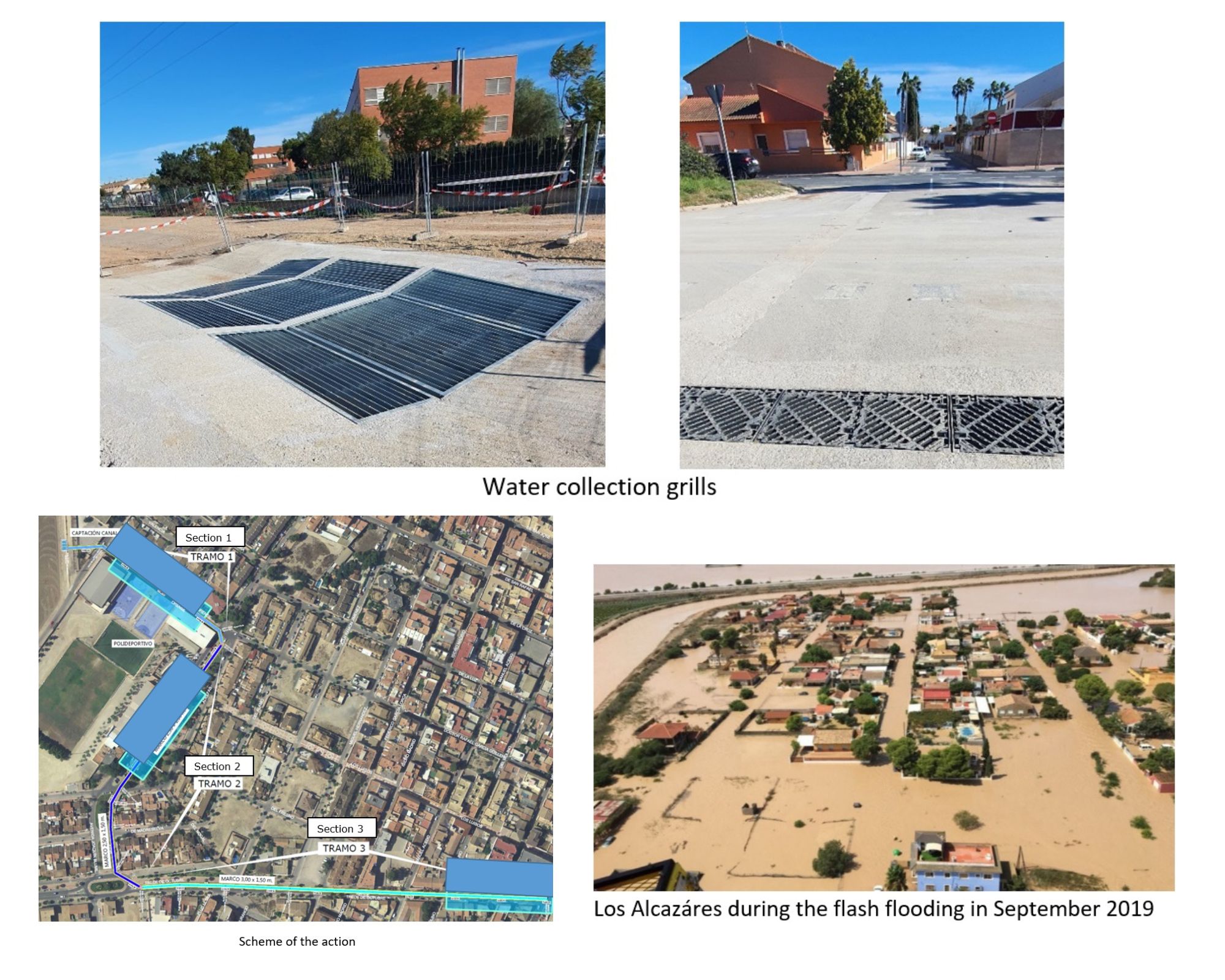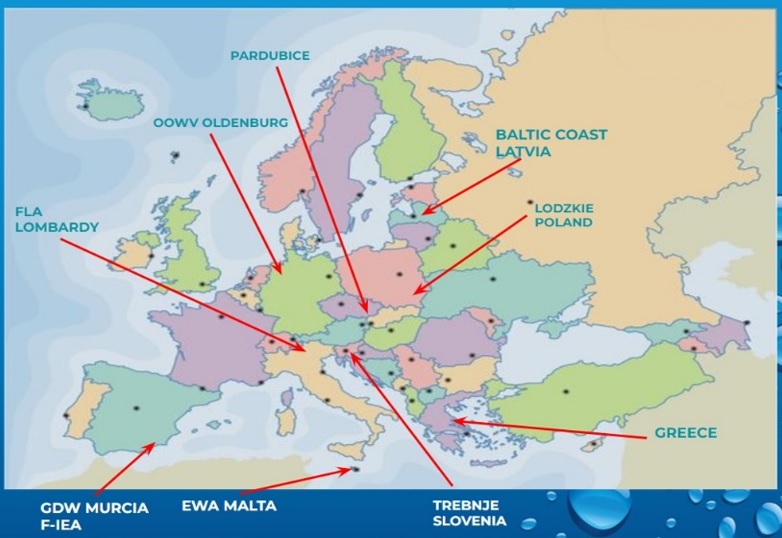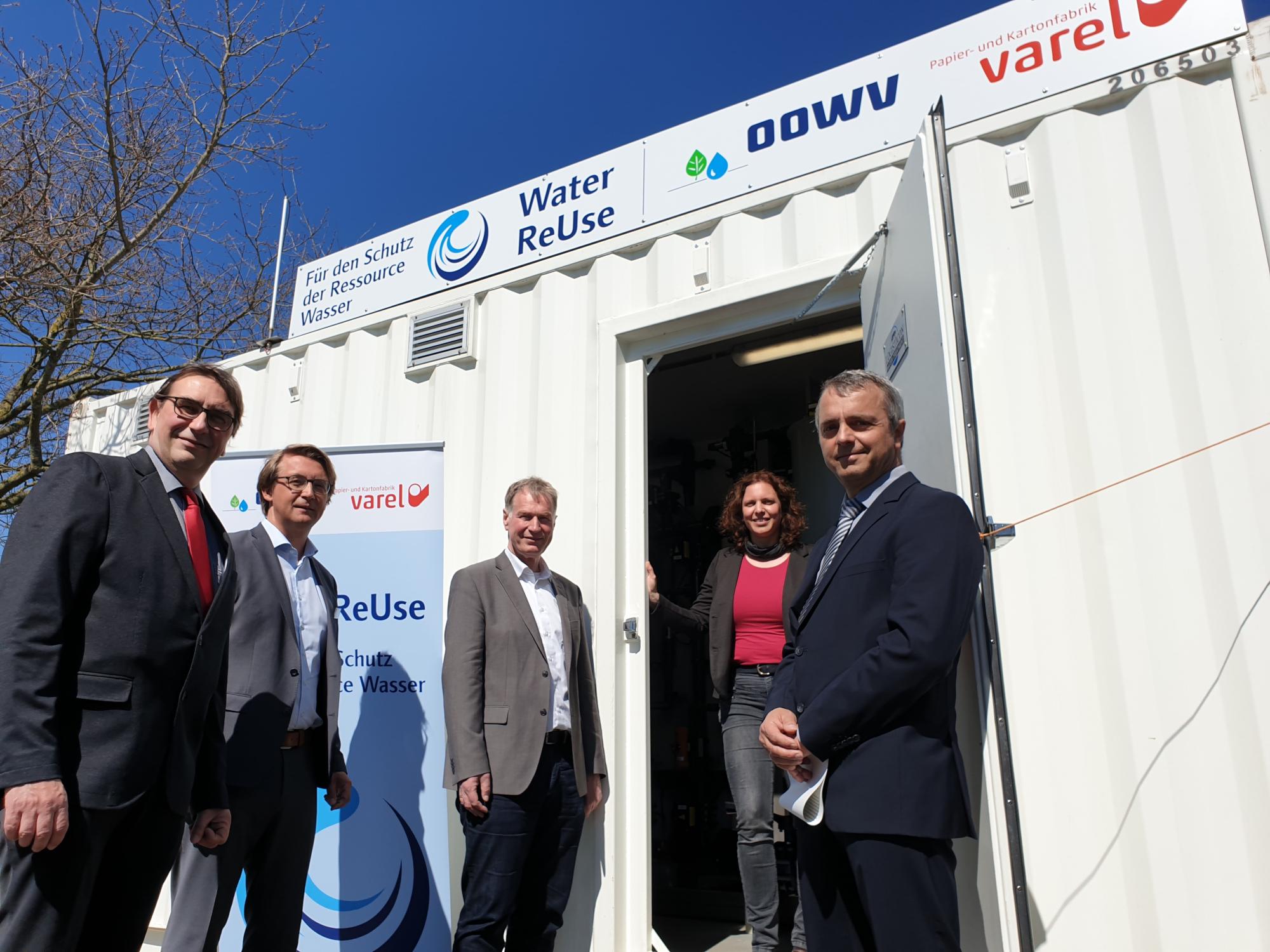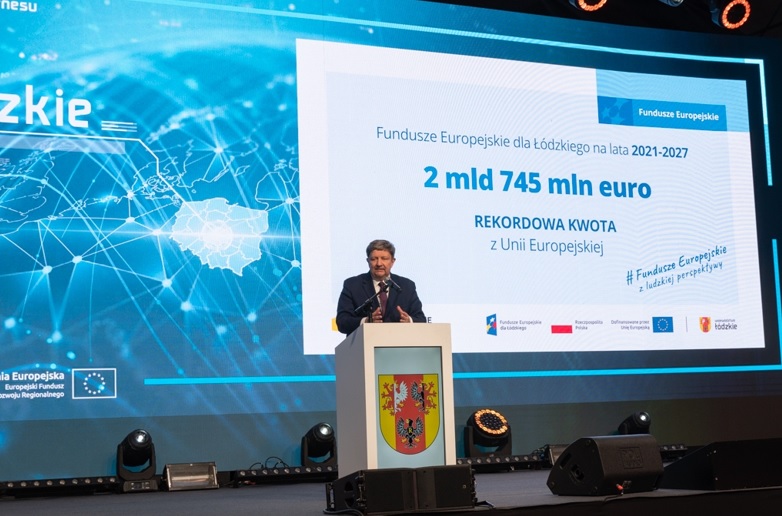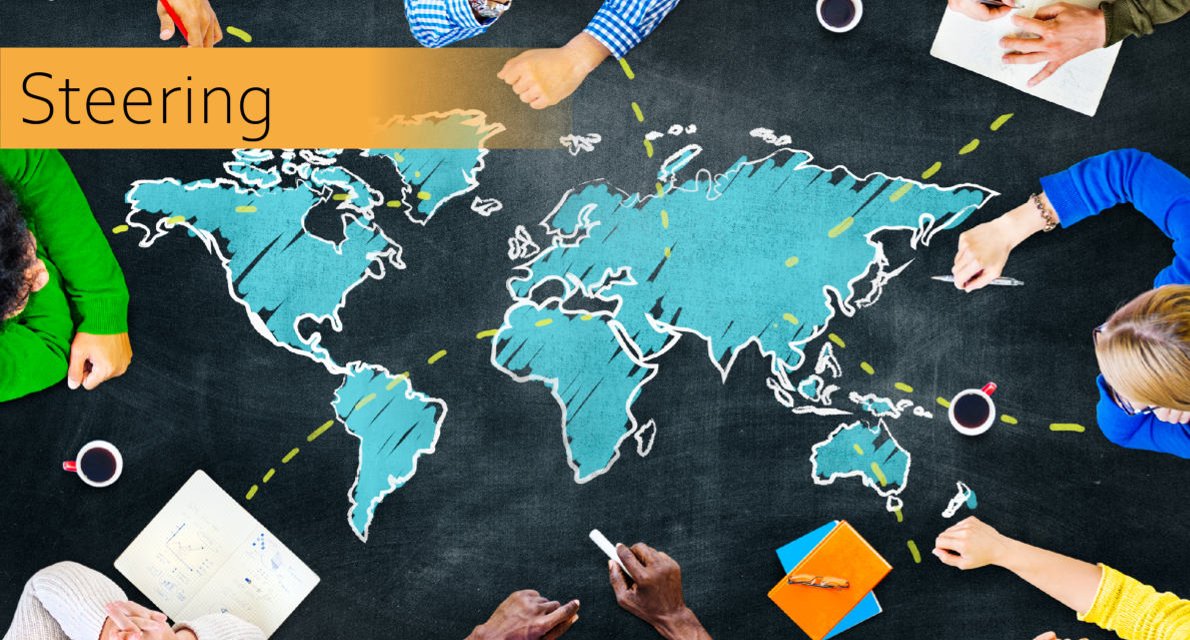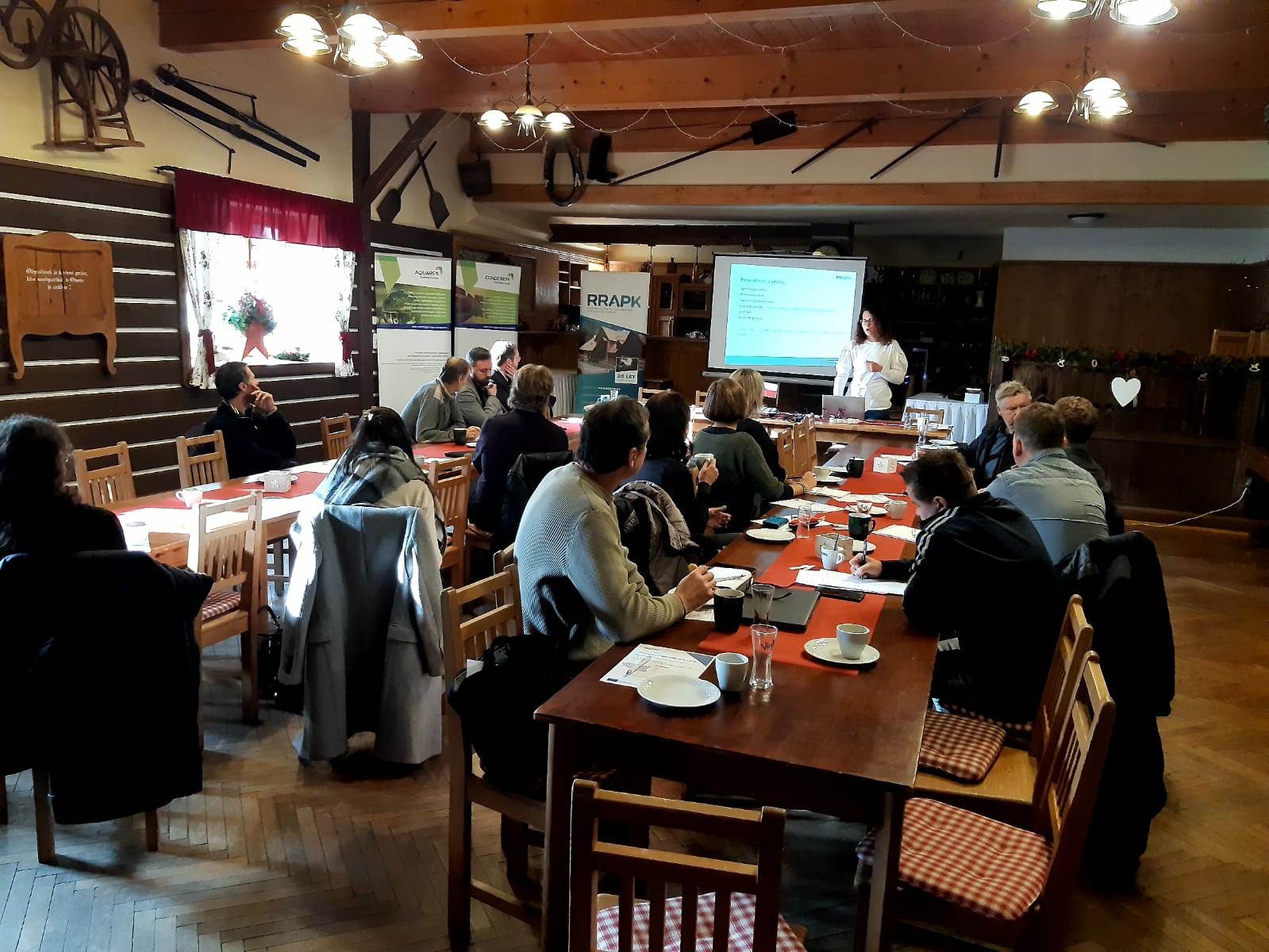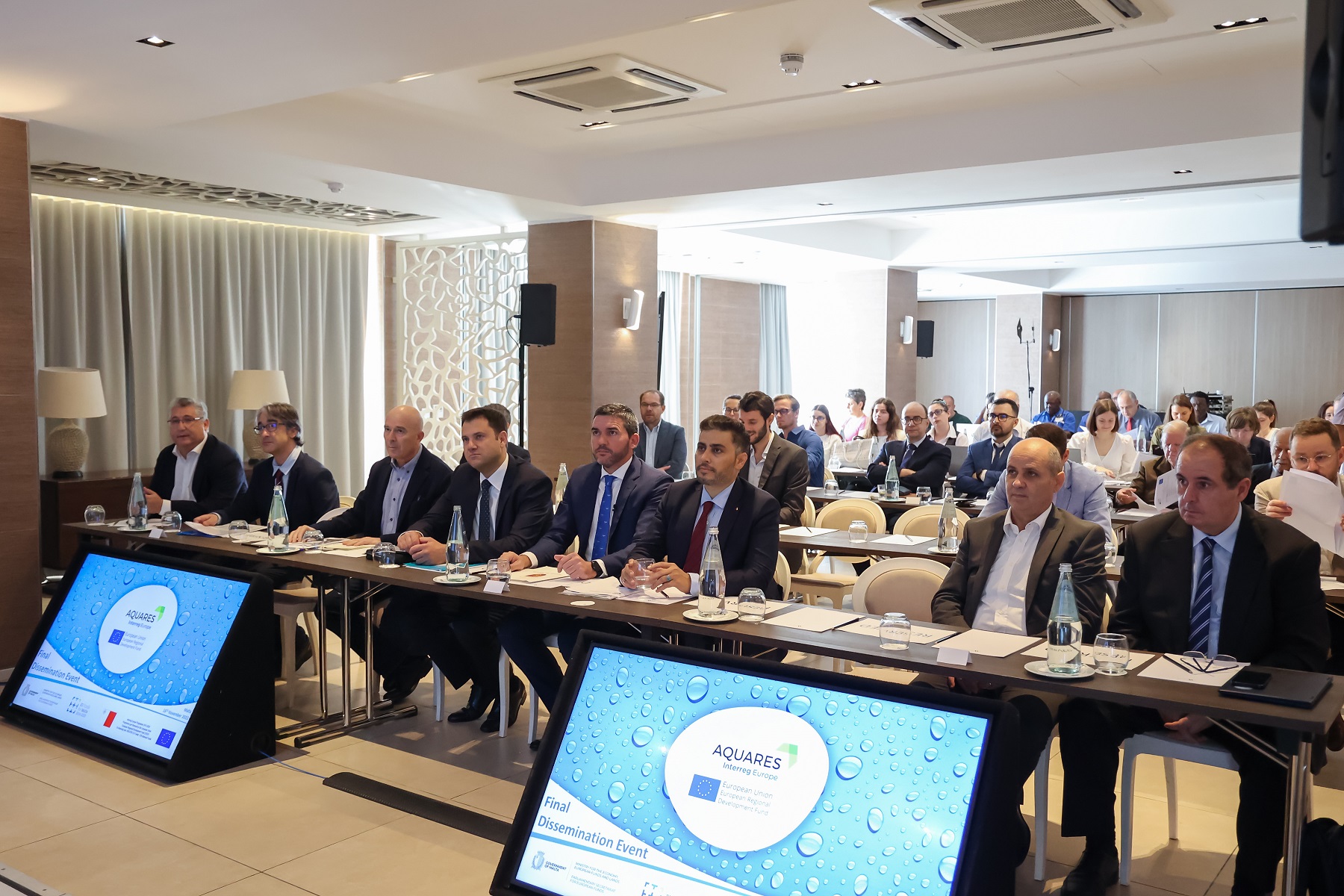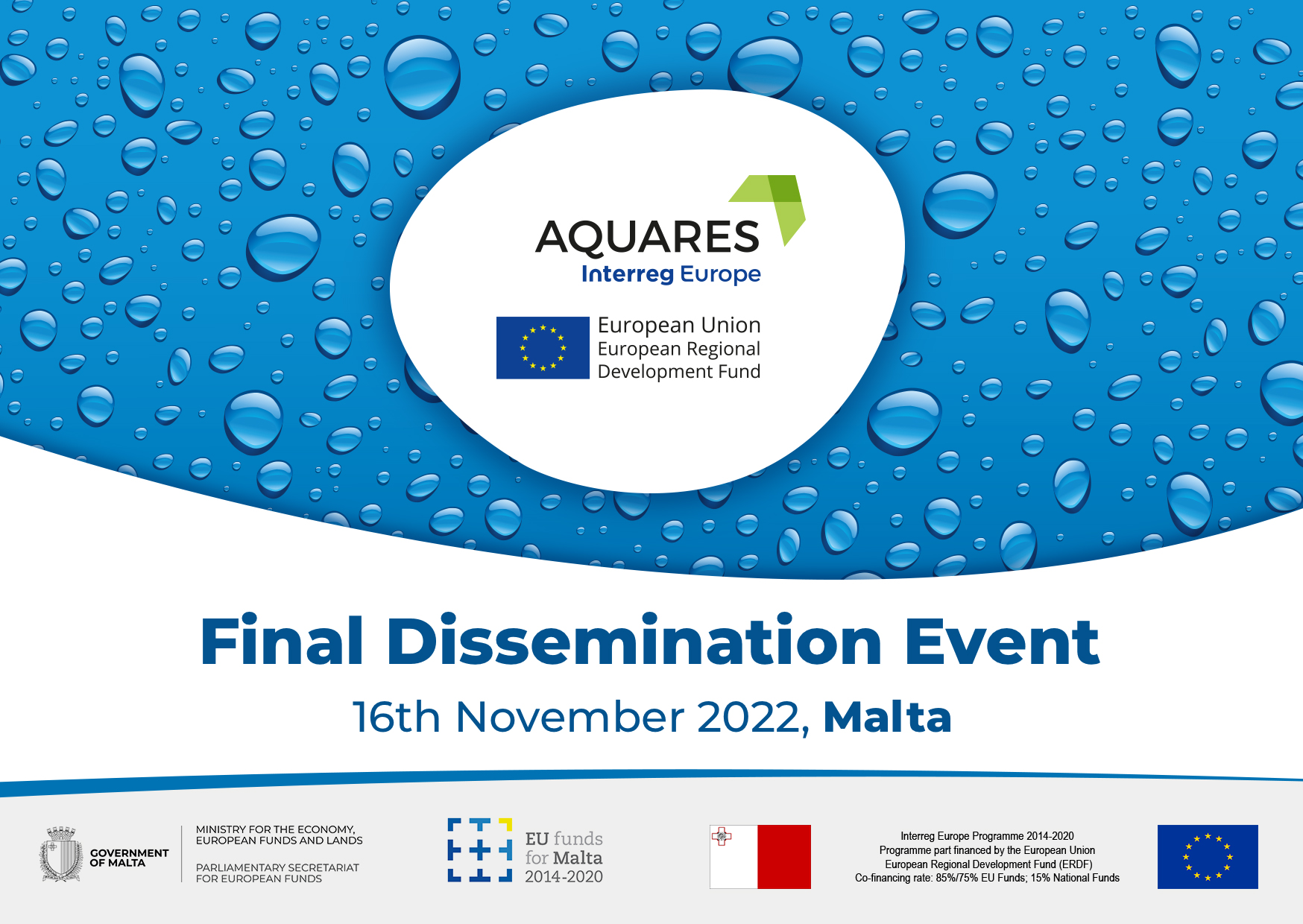On 16 and 17 October 2019, experts from the AQUARES project partnership countries, i.e. Spain, Czech Republic, Malta, Latvia, Slovenia, Italy and Germany, learned about innovative water treatment technologies implemented in the łódzkie voivodeship.
The second day of the study visit began at the Training and Conference Centre of the University of Łódź at 26 Rogowska Street, where Adam Kaźmierczak, Director of the Technology Transfer Centre of the University of Łódź and Prof. Maciej Bartos, Deputy Dean of the Faculty of Biology and Environmental Protection of the University of Łódź, presented to the participants the activities of the University of Łódź in the area of innovations and ecology.
Then, Dr. Tomasz Jurczak introduced the guests with the project "Ecohydrological reclamation of recreational reservoirs Arturówek in Łódź as a model approach to urban reservoirs reclamation (EH-REK)".
The activities implemented within the project limit the inflow of pollutants from the municipal catchment area to water reservoirs and the Bzura River. The principle of their operation is the concept of a sequential sedimentation and biotransfer system (SSSB). The system consists of three zones:
1. a sedimentation system, in which the flow of water is slowed down, as a result of which a significant part of the transported suspension is stopped,
2. biogeochemical, where phosphorus compounds dissolved in water are reduced through the use of dolomite-lime structure,
3. biological - using phytoremediation processes to reduce nitrogen compounds dissolved in water.
The solutions applied in Arturówek on the upper reservoir not only have a positive impact on water quality, but also improve biodiversity and provide habitats for living organisms.
Another place for the study visit was the Academic Sports and Didactic Centre of the Lodz University of Technology Sport Bay. The technologies used in the Sports Bay were presented to the participants of the study visit by Przemysław Solarek, Deputy Director for the Facility. Re-use of water in swimming pools consists in the operation of overflows in a closed circuit. Both swimming pools in the Sports Bay are equipped with overflow gutters, by means of which splashed water goes to the tank in the underbasin. These tanks are covered to avoid evaporation. Water circulating in a closed circuit is subjected to disinfection and filtration. For this purpose, pressure filters are used, consisting of about 200 candles. Water enters the filter under pressure and is filtered through diatomaceous earth, which is saturated with material around the "snail" of the filter. Chlorine is added to the water treated in this way, which is produced on site in an electrolyzer. NaCl salt forms a salt arc and chlorine in the form of gas, which is much more efficient than liquid chlorine. The water then flows through the UV lamp. The photo-oxidative disinfection lamp effectively neutralizes bacteria, viruses and other microorganisms and blocks their multiplication. Then the water returns to the pool with a system of pipes and bottom jets (in the amount of nearly 100). Within 1 day it can be estimated that in a swimming pool with a total volume of 3 300 m3 water is replaced on average three to four times. Monitoring of the quality of pool water is carried out continuously.

Picture: The Academic Sports and Didactic Centre of the Lodz University of Technology Sport Bay
The final part of the study visit to the łódzkie voivodship was the presentations of Cybercom Poland Sp. z o.o., Prof. Andrzej Jodłowski from the Faculty of Construction, Architecture and Environmental Engineering of the Lodz University of Technology, Jacopo Foschi and Riccardo Delli Compagni - researchers from Politecnico di Milano.
Aleksander Sokalszczuk from Cybercom presented the PoC (proof of concept) project of a solution used for ongoing monitoring of water condition in the network thanks to measurements made in many places, providing uninterrupted information on the occurrence of conditions conducive to the development of E. coli bacteria. The solution of the Łódź company is a response to the problem of lack of current information about the quality of water in the network, which results from the long waiting time for the results of manual measurements (an average of one day between sampling and testing) and the small number of measurement points.
The technological solution designed by Cybercom is based on a set of sensors: temperature, pH, water clarity, flow and smell (ultrasounds are used here, which allow the system to assess the smell of water - there are no sensors to assess the smell of liquid substances). Additionally, the system is equipped with a WiFi module, thanks to which all information about the quality of the tested water is recorded in the cloud.

Picture: Aleksander Sokalszczuk from Cybercom
The next AQUARES study visit will take place in the Pardubice Region (Czech Republic).
